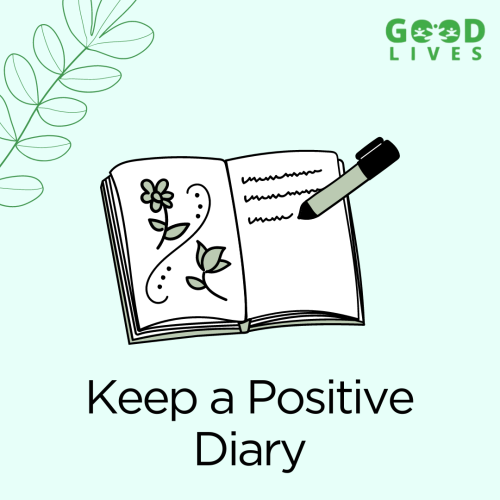
Are you struggling with self-doubt? Has it affected your self-confidence and daily life? Do you need help in overcoming self-doubt?
Before addressing these questions, what is self-doubt in the first place?
WHAT IS SELF-DOUBT?

Self-question is when you lack trust in your abilities. This mindset holds you back from making progress and believing in yourself. While humility is important, it can become counterproductive if it hinders your potential. It is therefore vital to address self-doubt in order to enhance your personal and professional life.
Self-doubt can lead to defeat, preventing us from achieving victories. As William Shakespeare wisely stated, “Our uncertainties betray us, causing us to forfeit the successes we could frequently attain just because we are afraid to attempt.”
Self-doubt is like a dark and troubling cloud that sometimes hangs over one’s thoughts, casting shadows on what they can achieve. That inner voice often wonders if they are skilled enough or deserve success. While self-doubt is natural, remembering past wins helps brighten the mind. Rather than getting stuck under doubt’s shade, close your eyes and picture moments when you tackle tough tasks through steady effort. Learn how to manage them.
5 Fascinating Ways to Deal With Self-Doubt
The fundamental advancement one can make toward conquering self-doubt is to acknowledge when it arises. It is perfectly normal to doubt yourself sometimes. By noticing doubts, a person can start to constructively deal with and address what is causing the uneasiness. Make an effort to determine exactly what triggers feelings of self-doubt. Mindfulness is a method for processing doubts and tracing a path to believing in oneself.
While self-doubt may emerge at times, with reflection comes the realization that one has overcome challenges before and will do so again. Though not always an easy journey, gradually gaining a perspective on distrusting thoughts helps boost assurance in one’s own abilities over the long run.

As Dr Dweck’s exploration suggests, adopting a growth mindset is important for navigating failure. Embrace and internalize the belief that you can develop skills and confidence through failures and setbacks. When you encounter failure, you can view it as a chance to learn and also change or modify your approach. This process not only helps you bounce back from difficulties but also pushes you to take necessary action when facing problems and difficulties.

Failure provides precious feedback on what did not work out and why. Rather than only allowing the bad experience, shift your attention toward the lessons you can learn from the experience. Thomas Edison, one of history’s topmost scientists, formerly said,” I haven’t failed, I have just set up 10,000 ways that will not work.” This mindset allowed Edison to approach failure as an integral part of a process that ultimately led to his success.
The person often aimed very high and felt let down. Who hasn’t felt that way? Trying to do too much all at once led to doubting one’s self. It’s better to break big goals into smaller, more manageable steps. accomplishing these smaller goals boosts confidence in one’s abilities. And remember, great things are built piece by piece. Progress requires patience.

Every failure provides you with an occasion for growth. Reflect on your failures by fastening on your learning process. You have to understand and analyze the factors that lead to it and consider how you can modify your approach toward the situation in the future. This process not only enhances your problem-solving but also increases your rigidity in the face of challenges.
The people one surrounds oneself with could vastly impact one’s self-doubt levels. It is crucial to spend time and effort with those who are optimistic and supportive. Their belief in you could act as armor against self-doubt’s negative impact. Surrounding yourself with close friends and family provides a sense of care, backing, and comprehension. They cheer you up and will be present for both life’s peaks and, most significantly, its valleys.
Friends and kinship circles lend perspective and balance during times of uncertainty or second-guessing. While self-doubt remains a natural part of the human experience, choosing to associate with those who radiate positivity can help boost confidence from within.
“What we think, we become”
See yourself experiencing victory every day, even if small. Picture the pride of accomplishment, the confidence boost it brings. Train your mind through vivid imaging to transform dreams into reality step-by-step. Play out scenarios of progress. With time visualisation will take hold and you will manifest all that you wished for in your mind into real life.

Having a personal diary will help you understand yourself better. It will be useful for self-reflection and growth. In the journal, you can document both big and small successes throughout each day. You can record accomplishments at school or work, as well as kind words from others. This will help you focus on positive moments and feelings of gratitude. By revisiting your entries, you can look back on her progress over time, whenever self-doubt sneaks in.

When faced with self-doubt that becomes too overbearing and makes normal living troublesome, seeking competent help to address the issue shows courage and wisdom. Counselors and mentors have experience guiding others through hard times, tailoring their guidance to meet each person’s unique needs. Stories from those who came before show it is possible to learn coping skills and build inner strength. By opening up about struggles, the room is made for understanding how thoughts can control actions and for gaining perspective on personal value not defined by worrying thoughts alone. Progress may feel gradual, yet with time and effort, clarity will surely emerge. Here is the modified text according to the given parameters:
Self-doubt might be an uncomfortable feeling inside yourself, yet it does’nt have to dictate how you live. By acknowledging your uncertainties, challenging negative self-talk, appreciating what you achieve, and welcoming a progressive perspective, you can progressively enhance your comfort with time.
You can find ways to combat sеlf-doubt in sеlf-hеlp books too! To discover some amazing sеlf-hеlp books, read our blog.
If you feel your sеlf-doubt is ovеrpowеring you, try talking to a professional right away!
0 Comments